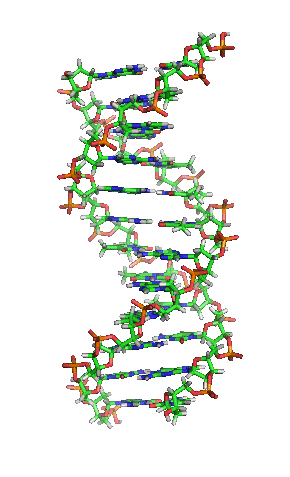
Everyone can see the resulting data and download it, including scientists
A wealth of extra free genetic data could be at scientists’ fingertips if a new website allowing the public to make their test results available gets enough traction.
OpenSNP provides a way for people who have had tests carried out by direct-to-consumer genetic testing companies – so far 23andMe, deCODEme and Family Tree DNA are supported – to upload their raw results online along with personal characteristics they wish to share from their eye colour to artistic ability to coffee consumption. Everyone can see the resulting data and download it, including scientists.
The non-profit hobby project, developed by three master’s degree students and a web developer, has just won first place – worth $10,001 – in the inaugural API Binary Battle, a competition funded by the paper sharing site Mendeley and the open access publishers Public Library of Science (PLoS) to build applications to make science more open while tapping into either or both platforms.
Bastian Greshake, studying for his master’s degree in ecology and evolution at Goethe University, Frankfurt, first had the idea for openSNP after he got himself genotyped this May. It provides a central repository for people who are willing to publicly share the powerful combination of both their genetic and phenotypic information, potentially enabling scientists to discover new genetic associations in the future, he explains.
While the companies already supply consenting customers’ genetic data for scientific research, and there are websites where people can upload their own, this is the first which includes phenotypic information too.
Thus far about 50 users have added their data to the website, which launched at the end of September. Greshake anticipates that at around 1000 data sets it will begin being useful for scientific study (though the information is entered on trust and data are unchecked).
Some scientists have already been in contact. “They thought it was a great idea and wanted to know how they can request our users provide extra phenotypic information,” he says.
Other than a rosy glow, the incentive for those willing to share their data are updates on the latest genetics research published in PLoS journals along with recommendations from Mendeley, of which summaries are also provided: great if you are interested in learning more about the genetic variations you are carrying.
The Latest on: Crowdsourcing
[google_news title=”” keyword=”crowdsourcing” num_posts=”10″ blurb_length=”0″ show_thumb=”left”]
via Google News
The Latest on: Crowdsourcing
- As Ukraine runs low on ammo, civilians build troops DIY drones at homeon April 27, 2024 at 10:22 pm
With Russian forces advancing on the battlefield, Ukrainian citizens are aiding their country’s defense by building drones at home and sending them to the front.
- How to avoid going broke soon after starting a businesson April 27, 2024 at 5:51 am
Yasameen Sajady, CEO of St. Paul, Minnesota-based Maazah, is learning that day by day, it takes awhile for profits to roll in.
- Family of deadly birthday party crash victims address community at vigilon April 26, 2024 at 4:06 pm
The event, held at the growing memorial site outside of the boat club, will honor the victims, families and first responders affected by Saturday’s tragic events.
- E-bikes Need More and Bigger Bike Laneson April 26, 2024 at 3:08 pm
More and bigger bike lanes will help us build a transportation system that is future proofed. It will be able to handle increased demands and have enough space for multiple types of transportation ...
- Eight Struggles You May Face When Raising Capital for Your Businesson April 26, 2024 at 8:00 am
However, there are a number of similar struggles you may face when trying to raise capital for your business that other seasoned entrepreneurs have also experienced. To share their own stories and ...
- Deciphered Herculaneum papyrus reveals precise burial place of Platoon April 25, 2024 at 10:33 am
Most notably, the historical account of Plato being sold into slavery in his later years after running afoul of the tyrannical Dionysius is usually pegged to around 387 BCE. According to the newly ...
- JAMA study praises X for crowdsourcing COVID ‘misinformation’on April 24, 2024 at 10:48 am
X’s crowdsourced approach to correcting what it calls fake news about COVID-19 vaccines offers an “effective misinformation countermeasure,” according to a study in the Journal of the American Medical ...
- Lawsuit filed in Monroe County birthday party crash that killed 2 kids, injured 15 peopleon April 23, 2024 at 1:31 pm
The firm filed a lawsuit against Marshella Chidester and Verna’s Tavern in relation to the crash into Swan Boat Club that killed Zayn and Alanah Phillips and left 15 others injured.
- Tesla Q1 2024 earnings preview: here’s what to expecton April 23, 2024 at 7:59 am
For Q1 2024, the Wall Street consensus is a gain of $0.49 per share, while Estimize’s prediction is slightly higher with a profit of $0.52 per share. Tesla had earnings of $0.85 per share during the ...
- The Best Workforce For Your Organization May Be A Talent Networkon April 17, 2024 at 12:06 pm
This new paradigm is not just about adopting new technologies. It’s about fundamentally rethinking how we build and lead our teams.
via Bing News









